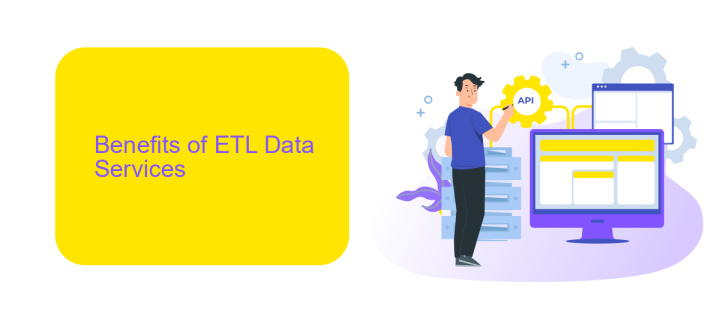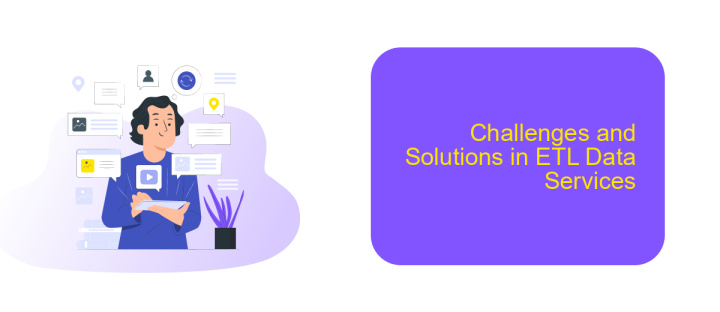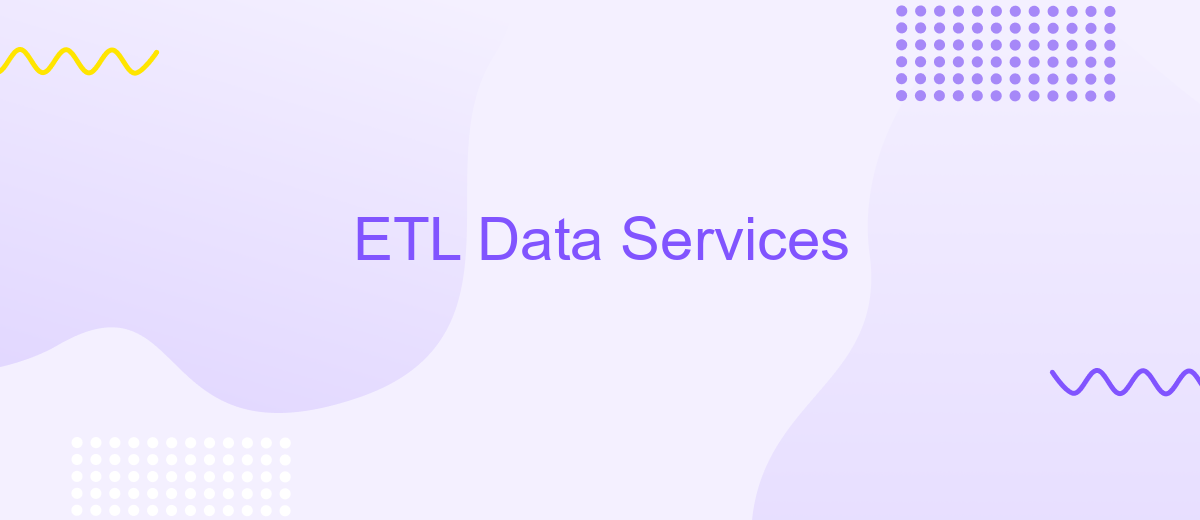ETL Data Services
ETL Data Services (Extract, Transform, Load) play a crucial role in modern data management and analytics. By efficiently extracting data from various sources, transforming it into a usable format, and loading it into target systems, ETL processes enable organizations to harness the power of their data. This article explores the key components, benefits, and best practices of implementing ETL Data Services.
Introduction to ETL Data Services
ETL Data Services are essential for modern businesses that deal with large volumes of data. ETL stands for Extract, Transform, Load, and it involves extracting data from various sources, transforming it into a usable format, and loading it into a data warehouse or other storage systems. This process ensures that data is clean, consistent, and ready for analysis.
- Extract: Collecting data from multiple sources such as databases, APIs, and flat files.
- Transform: Cleaning, enriching, and converting data into a usable format.
- Load: Storing the transformed data into a data warehouse or other storage solutions.
ETL Data Services streamline the data integration process, making it easier for businesses to manage and analyze their data. Tools like ApiX-Drive can automate these tasks, providing seamless integration between various data sources and destinations. By leveraging ETL services, organizations can make data-driven decisions more efficiently and effectively.
Benefits of ETL Data Services

ETL Data Services offer a myriad of benefits that significantly enhance data management and business intelligence. By extracting, transforming, and loading data from various sources into a centralized repository, organizations can ensure data consistency and accuracy. This streamlined process reduces the time spent on manual data handling, allowing businesses to focus on deriving actionable insights. Moreover, ETL services improve data quality by cleansing and validating information, ensuring that decision-makers have access to reliable data.
Another significant advantage of ETL Data Services is their ability to integrate with various systems and applications seamlessly. Tools like ApiX-Drive facilitate this integration by providing a user-friendly interface for connecting disparate data sources without requiring extensive technical expertise. This capability not only accelerates the implementation process but also reduces the potential for errors. Additionally, scalable ETL solutions can handle growing data volumes, making them ideal for businesses of all sizes. Overall, ETL Data Services empower organizations to make data-driven decisions efficiently and effectively.
How ETL Data Services Work

ETL Data Services streamline the process of extracting, transforming, and loading data from various sources into a centralized data warehouse. This ensures that data is consistently formatted and readily available for analysis and reporting purposes.
- Extraction: Data is gathered from multiple sources such as databases, APIs, and flat files. Tools like ApiX-Drive can facilitate this process by automating data extraction from diverse platforms.
- Transformation: The extracted data is cleaned, normalized, and transformed into a consistent format. This may involve data validation, deduplication, and enrichment to ensure data quality.
- Loading: The transformed data is then loaded into a data warehouse or another target system. This step ensures that the data is organized and accessible for business intelligence and analytics.
By leveraging ETL Data Services, organizations can enhance their data integration processes, ensuring that data is accurate, timely, and available for decision-making. Services like ApiX-Drive simplify these workflows, making it easier to manage and synchronize data from multiple sources efficiently.
Challenges and Solutions in ETL Data Services

ETL (Extract, Transform, Load) Data Services play a crucial role in managing and integrating data from various sources. However, these services come with their own set of challenges that organizations must address to ensure seamless data flow and accuracy.
One of the primary challenges in ETL processes is handling large volumes of data efficiently. This often leads to performance bottlenecks and increased processing times. Additionally, ensuring data quality and consistency across different sources can be a daunting task, as discrepancies and errors can easily propagate through the system.
- Performance Optimization: Implement parallel processing and in-memory computing to speed up data handling.
- Data Quality Management: Use automated data validation tools to detect and correct errors early in the process.
- Scalability: Leverage cloud-based ETL solutions to scale resources dynamically based on workload.
- Integration Tools: Utilize services like ApiX-Drive to streamline data integration and automate workflows.
By addressing these challenges with strategic solutions, organizations can enhance the efficiency and reliability of their ETL processes. Tools like ApiX-Drive can significantly simplify the integration of various data sources, thereby improving overall data management and operational performance.


Case Studies and Applications of ETL Data Services
ETL Data Services have proven invaluable across various industries by enabling seamless data integration and transformation. For instance, a leading e-commerce company utilized ETL services to consolidate data from multiple sources, including sales, customer feedback, and inventory management systems. This integration allowed for real-time analytics, resulting in improved inventory control and enhanced customer satisfaction. Another notable case is a healthcare provider that leveraged ETL services to merge patient data from disparate electronic health record systems, facilitating better patient care and streamlined operations.
One of the key tools that assist in setting up such integrations efficiently is ApiX-Drive. This service enables businesses to automate data transfers between various applications without requiring extensive coding knowledge. A financial institution, for example, used ApiX-Drive to integrate their accounting software with CRM systems, significantly reducing manual data entry and minimizing errors. By harnessing the power of ETL Data Services and tools like ApiX-Drive, organizations can achieve more accurate data insights and operational efficiencies.
FAQ
What is ETL in data services?
Why is ETL important for businesses?
How does automation improve the ETL process?
What are the common challenges in ETL processes?
Can ETL tools integrate with cloud services?
Apix-Drive is a universal tool that will quickly streamline any workflow, freeing you from routine and possible financial losses. Try ApiX-Drive in action and see how useful it is for you personally. In the meantime, when you are setting up connections between systems, think about where you are investing your free time, because now you will have much more of it.

